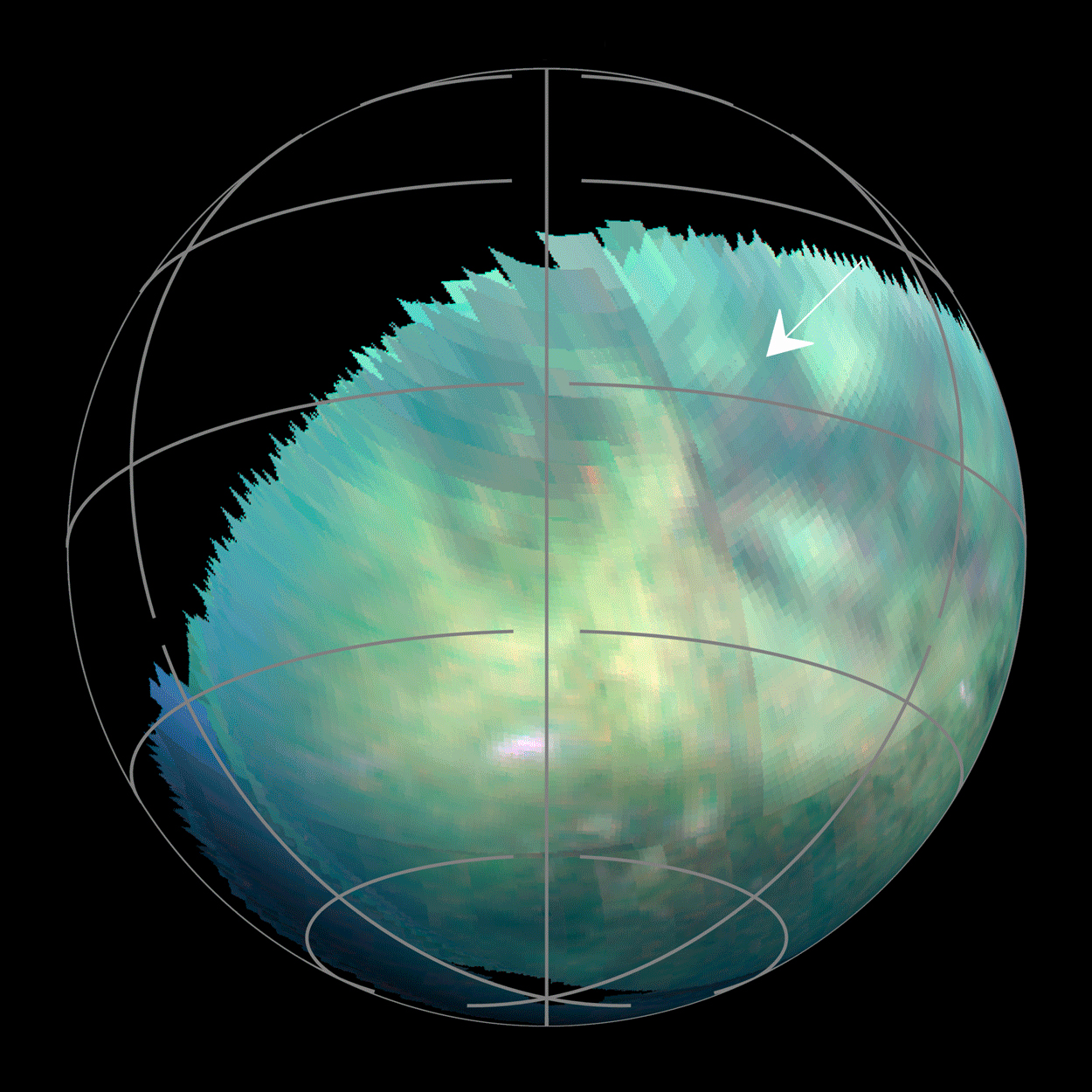
|
Spotting Dust Storms on Titan
- Click the image above for a larger view
- Full-Res JPEG (1250 x 1250) (1.2 MB)
- Full-Res TIFF (1250 x 1250) (1.1 MB)
Caption:
This animation -- based on images captured by the Visual and Infrared Mapping Spectrometer on NASA's Cassini mission during several Titan flybys in 2009 and 2010 -- shows clear bright spots appearing close to the equator around the equinox that have been interpreted as evidence of dust storms. The brightenings were visible only for a short period of time -- between 11 hours to five Earth weeks -- and cannot be seen in previous or subsequent images.
Background Info:
The Cassini spacecraft ended its mission on Sept. 15, 2017.
The Cassini mission is a cooperative project of NASA, ESA (the European Space Agency) and the Italian Space Agency. The Jet Propulsion Laboratory, a division of the California Institute of Technology in Pasadena, manages the mission for NASA's Science Mission Directorate, Washington. The Cassini orbiter and its two onboard cameras were designed, developed and assembled at JPL. The imaging operations center is based at the Space Science Institute in Boulder, Colorado.
For more information about the Cassini-Huygens mission visit https://saturn.jpl.nasa.gov and https://www.nasa.gov/cassini . The Cassini imaging team homepage is at http://ciclops.org .
Cataloging Keywords:
| Name | Value | Additional Values |
|---|---|---|
| Target | Titan | |
| System | Saturn | |
| Target Type | Satellite | |
| Mission | Cassini-Huygens | |
| Instrument Host | Cassini Orbiter | |
| Host Type | Orbiter | |
| Instrument | Visual and Infrared Mapping Spectrometer (VIMS) | |
| Detector | ||
| Extra Keywords | Atmosphere, Color, Dust, Infrared, Storm | |
| Acquisition Date | ||
| Release Date | 2018-09-24 | |
| Date in Caption | ||
| Image Credit | NASA/JPL-Caltech/University of Arizona/University Paris Diderot/IPGP | |
| Source | photojournal.jpl.nasa.gov/catalog/PIA22483 | |
| Identifier | PIA22483 | |
